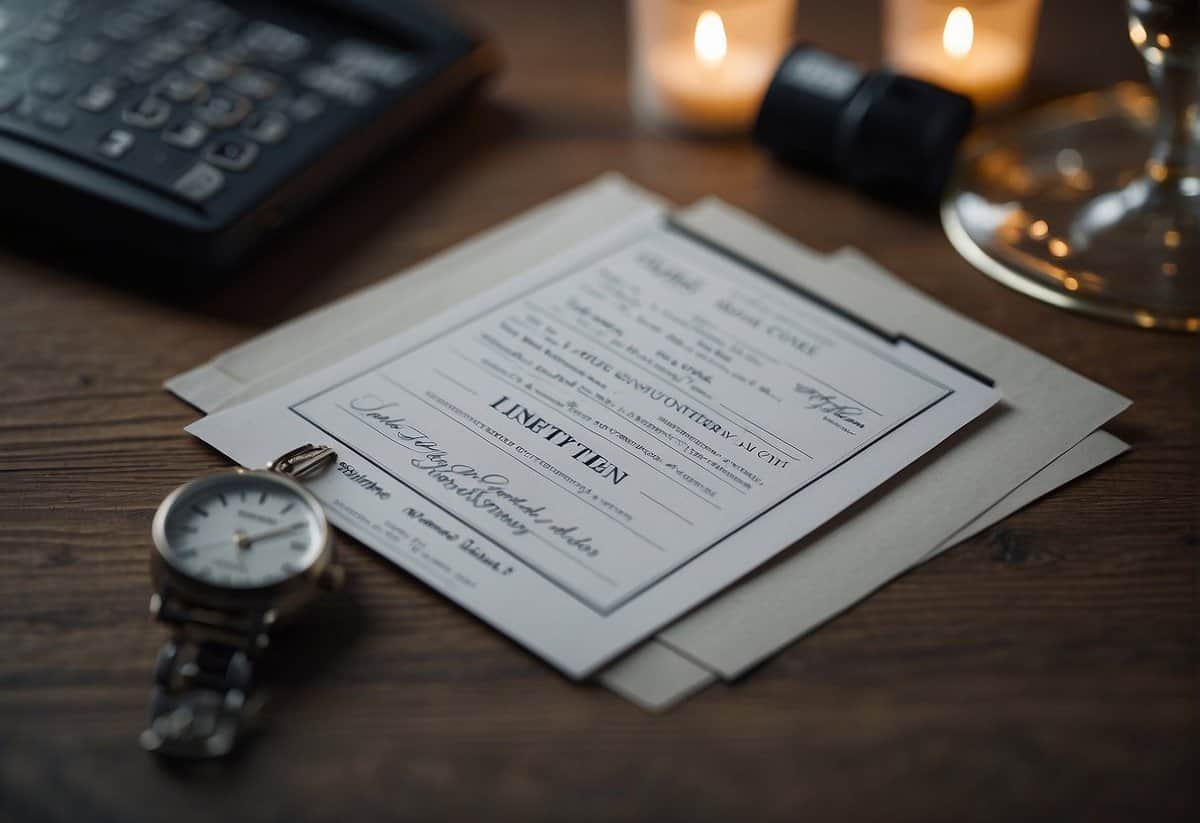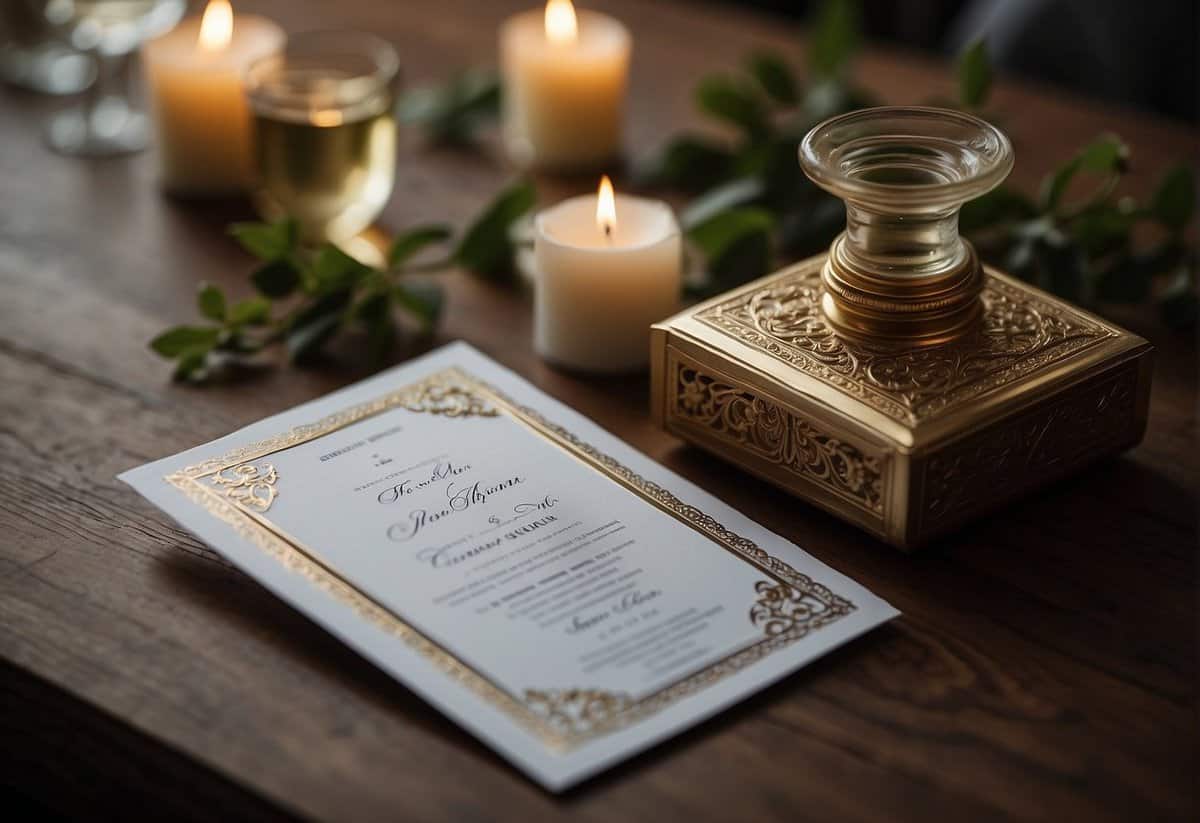Is It Rude to Not Go to a Wedding? Deciding Your RSVP Dilemma
When you receive a wedding invitation, it comes with the expectation that you’ll be there to celebrate the couple’s special day. However, there are times when attending isn’t feasible or there are personal reasons for not wanting to go. It’s natural to worry about appearing rude if you have to decline a wedding invitation. After all, a wedding is a significant event, and your absence might be felt. But it’s important to remember that you are entitled to make decisions that are best for your circumstances.

The etiquette tied to wedding invitations and RSVPs suggests that your response should be timely and considerate. It’s a matter of balance—honoring the importance of the occasion, while also respecting your own needs and limitations. If you must decline, doing so gracefully is key to maintaining a good relationship with the host. Clear communication and a thoughtful message can go a long way. Moreover, it’s your presence in the long-term friendship or kinship that ultimately matters more than a single day’s attendance.
Key Takeaways
- Handling a wedding invitation with timely and respectful communication is critical.
- Declining a wedding invitation gracefully helps maintain relationships.
- Your long-term relationship with the couple is more pertinent than your presence on their wedding day.
Understanding Wedding Invitations and RSVP Etiquette

When you receive a wedding invitation, it’s more than just a request for your presence; it’s a carefully planned request that comes with its own set of rules. Understanding the significance of RSVPs and how to decline an invitation respectfully can ensure you handle this social obligation with grace and proper etiquette.
The Significance of RSVPs
An RSVP is a critical component of a wedding invitation. RSVP stands for “Répondez s’il vous plaît,” a French phrase meaning “please respond.” This small card or note is your assurance to the host of your intentions. It allows the couple to arrange seating, catering, and other details to accommodate their guests adequately. Etiquette experts like Diane Gottsman stress the importance of timely RSVPs as a sign of respect towards the couple’s planning efforts. If you’re prompted to RSVP through a wedding website, take the convenience to do so as promptly and accurately as possible.
Etiquette Rules for Declining a Wedding Invitation
Even with the best intentions, you might find yourself unable to attend a wedding. It’s acceptable to decline a wedding invitation, provided you do so respectfully. Always send back the RSVP card indicating you will not attend or inform the couple through their preferred method of communication. Be sure to express your regrets appropriately – a brief, polite explanation or well-wishes for their special day can go a long way. Remember that good wedding etiquette doesn’t just involve showing up; it’s also about showing respect, whether you can make it or not. For situations that require a more nuanced approach, such as a last-minute change of plans, help can be found on The Knot’s guidelines for wedding invitation etiquette.
Reasons and Ways to Politely Decline a Wedding Invitation

When you receive a wedding invitation, sometimes you may find that you’re unable to attend. It’s important to handle the situation with consideration and kindness, keeping in mind your relationship with the couple.
Legitimate Reasons for Not Attending
Several legitimate reasons may prevent you from attending a wedding:
- Illness or Health Concerns: Your own health or the health of someone close to you can necessitate your absence.
- Death in the Family: A family bereavement is a significant and understandable reason.
- Prior Commitments: You may have unavoidable prior commitments, such as a work engagement or another event that you’ve already committed to.
- Financial Constraints: Sometimes the cost of attending a wedding, especially if it involves travel, can be prohibitive.
- Personal Reasons: Other personal circumstances may also apply that would make it difficult for you to attend.
How to Decline Politely and Tactfully
Declining a wedding invitation should be done with sincerity and respect. Here are some ways to politely decline:
- Direct, Yet Tactful: Use clear and straightforward language, but be gentle. You could say, “I regret to say that I will be unable to attend due to a prior commitment.”
- Use the Right Medium: Choose the method of communication that suits your relationship with the couple. This could be a handwritten note, an email, or, for more personal relationships, a phone call.
- Be Honest: It’s important to be honest about your reason for not attending if you’re comfortable sharing it. A simple “Due to personal reasons, I regretfully cannot attend” respects your privacy while conveying your regret.
- Sample Phrases: Here are some sample phrases to decline a wedding invitation:
- “I’m honored by your invitation, but unfortunately, I won’t be able to make it.”
- “I wish I could be there to celebrate with you, but I’m currently committed elsewhere on that date.”
Remember, the way you communicate your inability to attend can leave a lasting impression, so take the time to do it thoughtfully.
The Impact of Not Attending on Relationships
Deciding not to attend a wedding can stir a mix of emotions. Your choice is significant—both for you and the couple. It’s key to communicate your decision with care to avoid misunderstandings and maintain the bond you share with them.

Navigating Hurt Feelings and Misunderstandings
When you choose not to attend a wedding, it’s possible to unintentionally hurt feelings or cause misunderstandings. It’s important to be straightforward yet sensitive when conveying your reasons. Explain that your decision isn’t a reflection of your relationship with the couple. Use clear communication to prevent any resentment that might arise from your absence.
- Send a heartfelt note expressing your well wishes
- Be honest about your reasons in a considerate manner
- Make an effort to communicate directly, rather than allowing the couple to hear through the grapevine
This approach shows consideration for the couple’s feelings and can help prevent the situation from becoming awkward.
Maintaining Friendship after Declining
Maintaining a close relationship with the couple after you’ve declined the invite can be delicate, but it’s certainly achievable. Continue to communicate your support and interest in their lives. Let them know that your absence is not a measure of your friendship’s worth.
- Offer to celebrate in another way, perhaps a dinner before or after the event
- Stay connected and show genuine interest in the wedding and their new journey
- Reinforce your friendship by making future plans together
Remember that declining is not inherently rude; it’s the way you handle the situation that makes the difference. Showing that you care, despite not attending the wedding, can preserve and even strengthen your relationship with the couple.
Frequently Asked Questions

Navigating the social nuances of wedding invitations can be tricky, but it’s important to handle them with care and consideration. Here are some of the most commonly asked questions about declining a wedding invitation.
What are valid reasons for declining a wedding invitation?
You have every right to decline a wedding invitation if you have prior commitments, financial constraints, health concerns, or if traveling to the wedding is logistically difficult. It is also acceptable to decline if attending the wedding would cause you undue stress or discomfort.
How should I communicate that I won’t be able to attend a wedding?
It’s best to inform the couple as soon as you know you cannot attend. A polite and heartfelt message explaining your absence is appropriate. If a response card was provided, use it to formally decline. Otherwise, a personal phone call or a handwritten note is a thoughtful way to communicate your regrets.
Is it okay to skip a wedding if I’m not close to the couple?
Yes, you’re not obliged to attend a wedding if you do not feel a close connection to the couple. It’s important that you feel comfortable with your decision, and that your choice is communicated respectfully.
Can not attending a wedding cause a rift in a relationship?
Skipping a wedding can sometimes lead to hurt feelings, especially if the couple was expecting your attendance. If you’re concerned about this, it’s best to explain your reasons to the couple sincerely, to minimize any potential strain on your relationship.
Should I send a gift even if I’m not going to the wedding?
Sending a gift, even if you are not attending, is a generous gesture that shows you care for the couple. It’s usually appreciated and can be a way to celebrate their union from afar.
What is the etiquette for backing out of a wedding after RSVPing yes?
If circumstances change and you have to back out after initially accepting, communicate this change as soon as possible. Offer an apology and explanation to the couple and it’s considerate to also cover any costs that the couple might incur due to your late cancellation.


